Target Forward: Our Sustainability Strategy
Our vision is to co-create an equitable and regenerative future together with our guests, partners and communities.
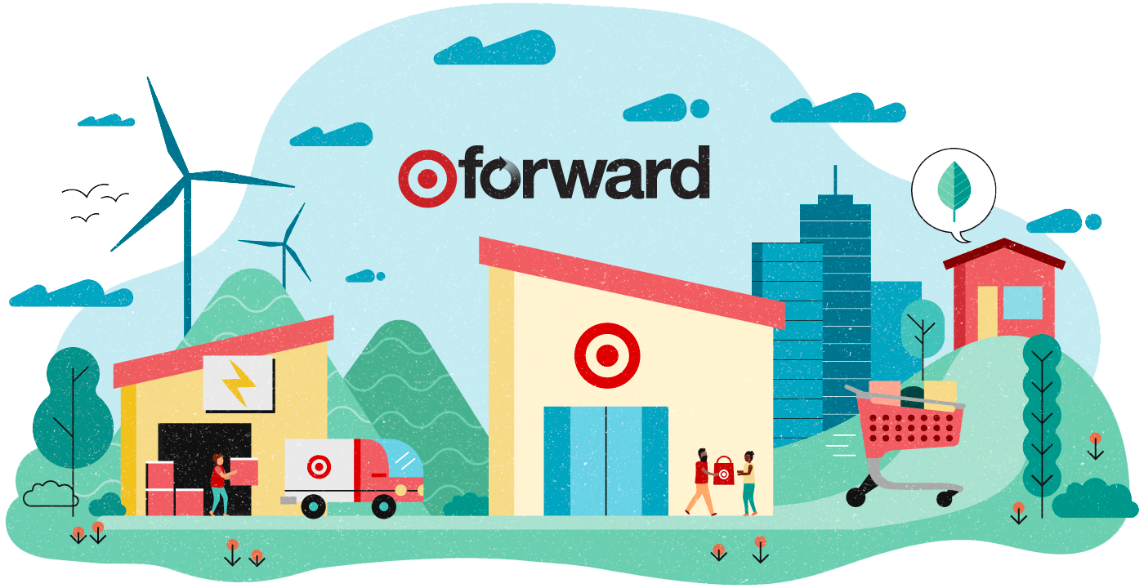
Our ambitions

Design and elevate sustainable brands
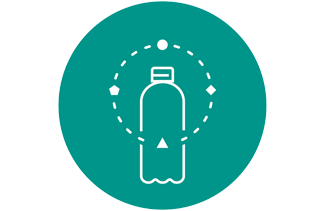
Innovate to eliminate waste

Accelerate opportunity and equity
How does Target approach sustainability?
Target takes a holistic view of sustainability, with efforts focused on our business driving positive impact for both people and planet while also generating business results. We see sustainability efforts as part of an interconnected system, where our actions help address climate change, restore natural systems and drive opportunity and equity for our teams, communities and partners. These actions impact and reinforce one another to create change that is good for all.
Target’s sustainability journey
Our work to bring solutions that better serve our communities and our environment can be seen across our business, including our sustainable product assortments, the increasing renewable energy footprint in our operations, our team members’ voluntary donations of their time and how we leverage our business assets to meet the needs of our communities.
- In 2019, we set science-based targets for emissions reductions across scopes 1, 2 and 3. We have also joined Race to Zero to help drive meaningful emissions reductions impact across our sector and value chain. We are on track to achieve our 100% renewable electricity by 2030 goal and achieved its interim milestone, with 60% of our electricity procured from renewable sources1 as of FY2022.
- Our circular design principles of thoughtful material choice, durability, repairability and recyclability can be seen in two of our owned brands, Universal Thread and Everspring, and we accelerated our commitment to sustainable packaging in 2018 when we became signatories to the Global Commitment, led by the Ellen MacArthur Foundation in collaboration with the UN Environment Programme Global Commitment.
- Voluntary donations of time, talent and money are longstanding Target traditions dating back to the founding of the Dayton Foundation in 1918. Since then, our team has had a transformative effect on thousands of our communities and millions of our neighbors, including a million hours of volunteerism in 2024.
Target Forward continues work toward these commitments and builds on our durable business model and culture of care that serves our guests, team members, partners and communities well — and delivers strong results.
The list below is a starting set of milestones we have established through ongoing listening and collaboration with our partners and communities. We will evolve and add to this list as we work to achieve our vision of a more equitable and regenerative future for all. Progress against these Target Forward goals will be updated annually through our sustainability and governance reporting.
How we'll get there
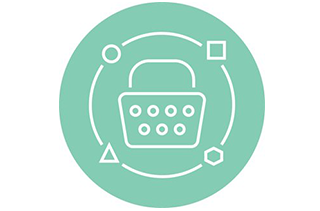
Target aims to elevate owned, national and emerging sustainable brands that are affordable, inclusive and inspirational.

Target is committed to a sustainable and inclusive supply chain that is just and equitable for all workers.
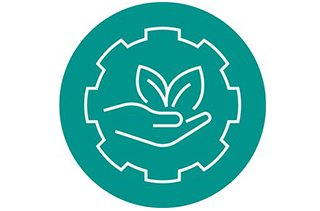
Target plans to partner across the value chain to design solutions that eliminate waste, while providing ease and convenience.
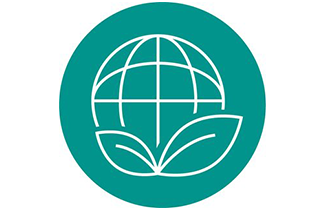
Target commits to being a net zero enterprise by 2040.
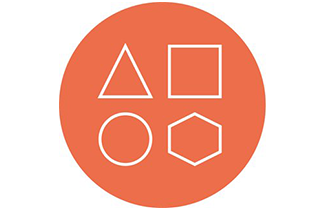
Target aims to create an equitable and inclusive workforce and workplace.
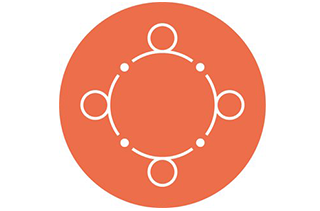
Target will help enable the vitality and resilience of our team and the communities we serve.
Our Goals
By 2030, Target aims to be the market leader for creating and curating inclusive, sustainable brands and experiences.
Initial milestone:
By 2030, Target intends for the leading raw materials (e.g., forest products, cotton and more) that go into our owned brand products to be 100% recycled, regenerative2 or sustainably sourced.
Foundations we've laid:
- With multiple partners and stakeholders, Target is working to meet responsible sourcing commitments for palm oil, cotton, forest-based products, coffee and seafood.
- In April 2021, we launched our commitment to spend more than $2 billion with Black-owned businesses by the end of 2025.
- In 2022, we launched Target Zero, an initiative to help our guests more easily find hundreds of products across our assortment that create less packaging waste.
By 2025, Target plans for 100% of our owned brands, in addition to our owned brand limited-edition and brand partnerships, to adhere to Target’s already established sustainability standards.
Foundations we've laid:
In several of our owned brands, including Everspring, Universal Thread, Spritz and Cat & Jack, we are already implementing our Chemicals Policy and Forest Products Policy.
By 2025, Target plans for 100% of owned brand suppliers to have policies and programs to advance gender equity.
Focus areas of these policies and programs include:
- Equitable systems for hiring and advancement.
- Financial security for their workers.
- Effective anonymous channels for incident reporting.
- Access to gender-responsive health information and services for their workers.
Foundations we've laid:
- Continued investment in CARE’s Dignified Work Initiative.
- Became a member in 2022 of the Better Than Cash Alliance to support our commitment that all owned brand suppliers pay workers digitally by 2025.
- In 2022, we launched our Just and Equitable Supply Chain (JESC) requirements to further our progress in building a responsible global supply chain; and in 2023, we developed a variety of tools to support suppliers’ participation in our JESC improvement cycle.
By 2040, Target plans for 100% of our owned brand products to be designed for a circular future.
Our teams will continue designing to eliminate waste — using materials that are regenerative2, recycled or sourced sustainably — to create products that are more durable, easily repaired or recyclable.
Initial milestone:
By 2025, Target aims to offer two circular owned brands.
Foundations we've laid:
- By embedding circular design into brand standards, Universal Thread and Everspring have become our first two owned brands designed for a circular3 future.
- Cumulative number of team members we trained on circular design since 2018: 4,158.
- Launched Target’s Circular Design Guide, a web-based training hub for team members to learn about circular design, and completed testing for our Circular Design Calculator enabling team members to calculate key factors when choosing materials.
By 2025, Target intends to reduce annual total virgin plastic in our owned brand packaging by 20% from a 2020 baseline4.
Initial milestone:
By 2025, Target intends to have 100% of our owned brand plastic packaging be recyclable, compostable or reusable.
Foundations we've laid:
- We are signatories to the U.S. Plastics Pact and the Global Commitment, led by the Ellen MacArthur Foundation in collaboration with the UN Environment Programme.
- Launched Target Zero, a curated collection with thousands of products and/or packaging designed to be refillable, reusable or compostable; concentrated; made from recycled content or made from materials that reduce the use of virgin plastic.
By 2040, Target commits to net zero greenhouse gas emissions5 across our enterprise (scopes 1, 2 and 3).
- By 2025, Target commits to engage suppliers to prioritize renewable energy and collaborate on solutions that protect, sustain and restore nature.
- By 2025, Target commits to source 60% of our electricity from renewable sources for our operations.
- By 2030, Target commits to source 100% of our electricity from renewable sources for our operations.
- By 2030, Target commits to achieve 55% absolute reduction in operations emissions (scopes 1 and 2) from a 2017 base year.
- By 2030, Target commits to achieve 32.5% absolute reduction in supply chain emissions (scope 3) covering purchased goods and services (PG&S), upstream and downstream transport6 and use of sold products from a 2017 base year.
Foundations we've laid:
- Set science-based targets for emissions reductions across scopes 1, 2 and 3 and updated those targets to align to the Science Based Targets initiative’s Corporate Net-Zero Standard. Our updated near-term scope 1 and 2 goals are in line with a 1.5°C ambition. Our updated near-term scope 3 goal is aligned to limiting warming well below 2°C, and our long-term scope 3 is aligned to keeping warming 1.5°C or below. We are currently seeking approval of our updated targets.
- Achieved our interim milestone to source 60% of electricity from renewable sources for operations in 2022, three years ahead of our goal.
- Made meaningful progress against our 2023 goal of 80% of our suppliers by spend setting science-based scope 1 and 2 targets. Suppliers that account for 75% of our spend have set these targets.
- In 2022, retrofitted our first store designed to be net-zero energy. As of 2023, it is successfully producing more than 100% its energy needs.
- Joined Race to Zero to help drive meaningful emissions reductions impact across our sector and value chain. We were previously signatories of the Business Ambition for 1.5°C campaign, which SBTi retired in March 2024. Read the final campaign impact report.
By 2030, Target plans to achieve zero waste7 to landfill in U.S. operations.
Foundations we've laid:
- In FY2024, we diverted 87% of operational waste and 53% of construction waste from landfill.
- Target received our first official zero waste7 certified location designation from the TRUE Certification (Zero Waste) for our Hawaii Flow Center in 2022.
- Achieved our goal to reduce operational food waste by 50% across our stores, supply chain facilities and headquarters by 2025 from a 2017 baseline year.
Target aims to drive equitable opportunities for advancement and engagement by continuing to be a leader in diversity, equity, inclusion and belonging.
Foundations we've laid:
- Target aims to create a welcoming and respectful environment for our team, guests, partners and communities through a commitment to inclusion, belonging and opportunity for all.
- Our values of inclusivity, connection and drive shape how we show up, work together and make decisions.
- Target recruits and retains a talented team that reflects the communities we serve. One example of how this comes to life is through our employee resource groups, open to all team members and focused on community-building and connection.
- Target offers a broadly curated assortment of relevant products and services that help our guests feel seen and celebrated, increasing relevance with consumers. This includes an assortment with a mix of national brands, owned brands and new, emerging brands — including Black-owned, Asian-owned, Latino-owned, Veteran-owned and women-owned brands and more.
- Our U.S. team members volunteered 1 million hours in 2024, representing industry-leading community impact efforts.
Target aims to create equity through benefit access and affordability to enhance total well-being.
Initial milestone:
Target aims to empower team members to create the employment experience of their choice through personalized scheduling.
Foundations we've laid:
- In 2022, announced a new starting wage range from $15 to $24 per hour.
Expanded access to comprehensive health benefits for hourly team members working a minimum average of 25 hours/week.
In 2024, continued to enhance our Dream to Be benefit, which includes over 250 tuition-free programs across more than 40 colleges and universities.
Improved access to more stable schedules and transparency around scheduling policies to accommodate team members’ desired hours, including a new mobile scheduling app that allows team members to conveniently add or swap shifts.
By 2030, engage and elevate community voices as we seek to build and implement community-driven solutions.
Initial milestone:
By 2025, Target and Target Foundation plan to evolve our philanthropic practices and place-based solutions to invite participation from communities.
Foundations we've laid:
- Target team members have impacted thousands of local communities through listening and showing up in relevant ways, volunteering more than 1 million hours and contributing millions of dollars to charitable causes in 2024, the ninth time in Target history that we’ve reached this milestone.
- In 2024, Target and Target Foundation donated $406 million, with $396 million of that directed to organizations with local community impact.
We’ll continue to evolve and add to this list of milestones as we work to achieve our vision of a more equitable and regenerative future for all. We will provide updates on our goal progress in our annual sustainability and governance reporting.
1. To calculate the percentage of renewable electricity in Target’s operations, we evaluate both the amount of renewable electricity from Target’s projects and the renewable electricity in the grid. This total renewable electricity is then compared to Target’s total electricity use per the following equation: Target’s Renewable Electricity % = (Target Renewable Electricity Projects + Renewable Electricity in the Grid) / Target Electricity Use.
2. Operating the business in a way that does not just stop harming the environment but helps restore and regrow natural systems. For example, regenerative agriculture is a rehabilitation approach to farming systems that focuses on topsoil regeneration, increasing biodiversity and improving the water cycle.
3. Developing and manufacturing Target owned brand products, including taking steps to eliminate waste, keep products and materials in use longer, and decrease our dependency on natural resources.
4. Data covers food and beverage, and essentials and beauty categories only.
5. Net zero, as defined, is achieved when a company’s scope 1, 2 and 3 emissions are reduced to a level that is consistent with a 1.5°C pathway, and any residual emissions are removed from the atmosphere through either nature-based or technological carbon removal solutions (e.g., forestry, regenerative agriculture, carbon capture technology), by no later than 2050, in alignment with the Paris Agreement. Target has committed to net zero greenhouse gas emissions across our enterprise, 10 years ahead of the Paris Agreement.
6. Fulfillment only.
7. The conservation of all resources by means of responsible production, consumption, reuse and recovery of products, packaging and materials without burning and with no discharges to land, water or air that threaten the environment or human health, as established by the Zero Waste International Alliance. The threshold to be considered “Zero Waste” is normally set at a minimum of 90% diversion rate.